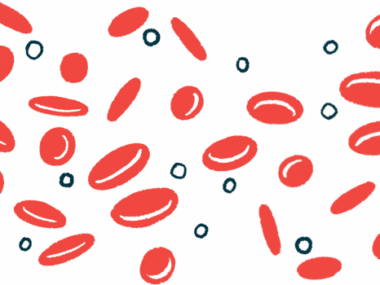New law signed to create Colorado outreach program for SCD patients
Arie P. Taylor Sickle Cell Disease Outreach Program to help ease care inequities
Written by |

Legislation to provide new outreach and support services to Colorado residents living with sickle cell disease (SCD) is now law.
Gov. Jared Polis (D) signed the measure (SB24-042) calling for the appropriation of $200,000 to make the Arie P. Taylor Sickle Cell Disease Outreach Program part of the Colorado Department of Public Health and Environment (CDPHE).
The legislation was sponsored by Assistant Majority Leader Rep. Jennifer Bacon (D), Rep. Regina English (D), Sen. Rhonda Fields (D), and Sen. Janet Buckner (D). It recently passed the Colorado House of Representatives by a 61-3 vote.
“Sickle cell disease is a debilitating condition that takes a toll on an individual’s health and quality of life,” Fields said in a press release. “Worse, we see disproportionately high rates of sickle cell disease in Black communities. This important program will provide critical outreach to individuals living with sickle cell disease to help connect folks to supportive health care and community services, and will help address long-standing health inequities that remain far too prevalent in marginalized communities across our state.”
New program will run until mid-2030
According to the signed legislation, the CDPHE is required to, by Jan. 1, 2025, contract with a nonprofit that has experience in providing support and services to people with SCD and their families. The program, named for Colorado’s first Black female legislator, will run until July 1, 2030. Before then, the organization must file a report detailing the program’s impact.
“Arie P. Taylor was a trailblazer as Colorado’s first female Black representative,” Buckner said. “Creating this program in her name honors her legacy and ensures communities she represented have the support they need to thrive — just as Ms. Taylor envisioned. I’m proud to see this bill get signed into law and I look forward to seeing how the Arie P. Taylor Sickle Cell Disease Outreach Program will support individuals and families and ultimately, change lives.”
To determine useful services, the CDPHE may work with the Colorado Sickle Cell Treatment and Research Center at the University of Colorado, which coordinates clinical care, research activities, and education efforts across the state. Established in 1978, the center works to provide care to Colorado’s estimated 450 sickle cell patients, who live primarily in the Denver metropolitan area, Fort Collins, and Colorado Springs.
The outreach program could provide health guidance and counseling, and help SCD patients and their families with locating and accessing outreach activities, community services, screening, peer support, and other care referrals. In addition, the program could facilitate advocacy efforts on behalf of the sickle cell community, according to the sponsors.
SCD occurs in approximately 1 of every 365 Black or African-American births in the U.S. and 1 of every 16,300 Hispanic-American births. More than 260,000 African Americans live in Colorado, according to the center’s state action plan, as do about 1.3 million Hispanics. The state also has a burgeoning community of more than 45,000 African immigrants.
“Long-standing inequities in our health care system have left many Black Coloradans without access to the care they need, let alone specialized care,” said Bacon. “The new program honors Ms. Taylor’s legacy by providing individualized support to our community and works to bridge the gap in health care access.”





